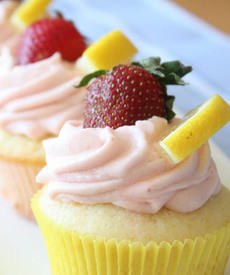Food Sobriety!

cbateach
Posts: 1 Member
So, the words stung a little and scared me a lot! You need to get sober! Yep - off the carbs and sugar in order to manage my food addiction! Anybody else on the same journey. This isn't so much about losing weight - although that would be a nice benefit, but I need to manage why food is my go to for a good day and even more so for a bad day. I would love to take this journey with partners..
0
Replies
-
Who told you this? A doctor?0
-
Before I started a few weeks ago, I was all gung-ho about giving up all added sugar for 30 days to detox my system and then add in small amounts of natural sugars afterwards... I want to lose weight but I also want to sleep better, feel less tired, have more energy and feel healthier overall... But as a single mom with a full time job, I found it to be too extreme of a change for me. So I am taking it a day at a time... Eating as few processed foods as I can and relying heavily on fruits, nuts and veggies to keep me full and from time to time I'll have a little special treat... My biggest thing is getting it stuck in my head that I'm not going to go overboard, I'm not going to binge... I'm already feeling more rested and more energized so I must be doing something right
 0
0 -
Carbs and sugar? I think the biggest obstacle for most people on MFP is learning how to moderate their eating. Learning to make wise food choices while being mindful of your calorie deficit is very hard. It has meant that I have to think before I eat. It was a hard lesson for me, as I was a binger for sure. It has taken at least 18 months to be at a place where I can eat whatever food I choose. I have worked hard by weighing/measuring everything that went in my mouth. I now have retrained my brain to look at food differently.
So, you can eliminate trigger foods if you need to - but just remember they are always out there. When you're at the store, at office functions, at friend's and family's houses, in the drive thru lanes, well, everywhere. A better use of your time is to teach yourself the skills of moderation and delayed gratification. They are in your head forever and will make living in the real world a heck of a lot easier.
Best of luck!
edited for my atrocious spelling0 -
None of that makes sense to me so I am out. I love good more than ever since I lost weight.0
-
I meant I love food more than ever now:)
I think I restricted myself more and was more obsessed with food when I was over-weight.0 -
My weight loss has been as much a psychological journey as a physical one. My weight loss doctor had me take an assessment that helped isolate that I'm an emotional eater, so much of my program has been identifying the difference between hunger and cravings. I don't think anyone would or should expect you to quit something cold turkey and never ever eat certain foods ever again, but if a break while you retrain yourself how to eat and what correct portion sizes look like will help, go for it.
My trigger foods are pizza and hamburgers. Pizza slices are like potato chips for me, betcha can't have just one. At first I stopped completely, then about a month or so in had a whole pizza, now I make a healthier pizza at home with a set serving size with manageable calories so I can still enjoy that food, but not binge.
Best journey to you. If you want to add me for support, please do so.0 -
My weight loss has been as much a psychological journey as a physical one. My weight loss doctor had me take an assessment that helped isolate that I'm an emotional eater, so much of my program has been identifying the difference between hunger and cravings. I don't think anyone would or should expect you to quit something cold turkey and never ever eat certain foods ever again, but if a break while you retrain yourself how to eat and what correct portion sizes look like will help, go for it.
My trigger foods are pizza and hamburgers. Pizza slices are like potato chips for me, betcha can't have just one. At first I stopped completely, then about a month or so in had a whole pizza, now I make a healthier pizza at home with a set serving size with manageable calories so I can still enjoy that food, but not binge.
Best journey to you. If you want to add me for support, please do so.
If you haven't already, check out two books: Intuitive Eating and the Beck Diet Solution. Both are really helpful when it comes to what you're talking about.0 -
So to be honest with you, I have begun a FOOD SOBER group on Facebook. While some people really don't feel that food is an addiction, here are some of the facts. And, honestly, you can google up the information in the journals of medicine yourself. Sugar lights up the same portions of the brain as do alcohol, heroin and cocaine. It is something that you put in your body that has a consequential, physical effect. So the more you feed yourself the element that lights up the triggers, the more you want it. If you've ever worked to be OFF of sugar or refined carbs, you know the pain of the "withdrawal" headache. But beyond the physical effects, are the psychological effects of food. Certain emotions can trigger certain responses - for me that response was eating. For someone else, it may be that "I gotta have a glass of wine!" Too many people are self-medicating with food - but - well, it's just acceptable because it's, well, just food, right? I'm not trying to be on a band wagon and I am not making sweeping generalities that food, for EVERYONE, is an addiction, because alcohol isn't an addiction for EVERYONE - though I hazard to guess that drugs and cigarettes fall into a bit different category. I've also read the Beck Diet Solution book, among others. But the very first thing I had to do, literally, was admit that there was this push/pull, constant fight within myself about food. I have given this up to God, I have defined what food sober means to me (for others it may look a little differently) and I am working my way through, meal by meal. I've often had people say to me (because I do coach people through this) that well, alcoholics never have to step foot around alcohol, but you have to eat. Yep. That's true. You have to eat. BUT! You DON'T have to eat donuts, cakes, ice cream, potato chips, McDonald's, Taco Bell - you name it. You don't have to eat junk. You CAN choose to say - that is not who I am. You CAN choose - in the moment - to determine whether it is more important in the moment to be sober, than it is to stuff some potato chips in your mouth. I'm not trying to be harsh, I'm trying to be real. And yes - this is all about promoting healthy eating! It's not about deprivation - but it is about understanding your own body, how it works, how foods affect it both physically and psychologically, and working a plan accordingly. My ACHILLES heel is Mexican Food! YIKES! Do I love it? Yes. Do I go? VERY VERY rarely. And ONLY if I'm not feeling vulnerable - i.e. frustrated, upset, angry, sad, starving -- if I'm feeling good and I KNOW I can make a healthy choice, then once in a blue moon is okay. Otherwise, that is just off limits for me. You know, people wouldn't suggest to an alcoholic that they should have a CHEAT day once a week and slam back a drink, right? Nor would they suggest to someone struggling with smoking that they can have a cigarette once a week, or once a month. Food is a LITTLE different, but to some people, not by a whole lot. Good luck to all who feel like they are in that struggle, and for those of you that don't - God Bless! I wish I had been in that category but I'm not, and rather than fight it, I'm going to learn and grow from it instead! Hope that helps someone else -- and my group on Facebook is just called "FOOD SOBER".-1
-
? Not so sure on the reasoning of having to cut sugar and carbs...it wont sold the issue at all. I highly doubt a Dr used these words. You need to learn how to eat with moderation, including carbs and sugar. Cutting something and taking that drastic of a approach is always were people make their first mistake.0
-
I completely understand this. Food isn't my go to as much as Pop/Soda (namely Coca Cola). I recently realized my addiction as well and if someone had decided Coca Cola was alcoholic, I would be a full blown alcohol in serious need of rehab. I have been "sober" for 103 days now. Feel free to add me
 0
0 -
I'm gettin' all feckin' high off these carby black beans I'm eating for lunch...just wait 'till I hit my red cherries for desert...feckin' crack monkey city...0
-
Zombie thread =\0
-
-
All of the above is true - lifestyle changes are hugely important. The way we think about food and treat food is important. Learning to implement strategies for all the various things that come up in life is important. But what you put in your mouth breaks down in the body in a variety of ways. Some are helpful, some not. The research is out there. Moderation, knowing your own body and putting food into perspective is key. Okay, easy, right? Then why is 2/3 of our country overweight or obese? Why are people exercising more but still gaining? It really is about the 6 inches between your ears, starting with getting the mindset straight. If feeling you are "food sober" helps with that - then great. If "food sober" means a decision on a moment to moment basis, especially when you are first starting out means it boils down to a yes I will eat this, or no I won't decision, then it makes it pretty simple.
i) Gearhardt, A.N., Corbin, W.R., and K.D. 2009. Brownell. Preliminary validation of the Yale Food Addiction Scale. Appetite. 52(2): 430–436.
(ii) Colantuoni, C., Schwenker, J., McCarthy, P., et al. 2001. Excessive sugar intake alters binding to dopamine and mu-opioid receptors in the brain. Neuroreport. 12(16): 3549–3552.
(iii) Volkow, N.D., Wang, G.J., Fowler, J.S., et al. 2002. “Nonhedonic” food motivation in humans involves dopamine in the dorsal striatum and methylphenidate amplifies this effect. Synapse. 44(3): 175–180.
(iv) Ebbeling CB, Sinclair KB, Pereira MA, Garcia-Lago E, Feldman HA, Ludwig DS. Compensation for energy intake from fast food among overweight and lean adolescents. JAMA. 2004 Jun 16;291(23):2828-2833.
(v) Brownell, K.D., Kersh, R., Ludwig. D.S., et al. 2010. Personal responsibility and obesity: A constructive approach to a controversial issue. Health Aff (Millwood). 29(3): 379–387.0 -
All of the above is true - lifestyle changes are hugely important. The way we think about food and treat food is important. Learning to implement strategies for all the various things that come up in life is important. But what you put in your mouth breaks down in the body in a variety of ways. Some are helpful, some not. The research is out there. Moderation, knowing your own body and putting food into perspective is key. Okay, easy, right? Then why is 2/3 of our country overweight or obese? Why are people exercising more but still gaining? It really is about the 6 inches between your ears, starting with getting the mindset straight. If feeling you are "food sober" helps with that - then great. If "food sober" means a decision on a moment to moment basis, especially when you are first starting out means it boils down to a yes I will eat this, or no I won't decision, then it makes it pretty simple.
i) Gearhardt, A.N., Corbin, W.R., and K.D. 2009. Brownell. Preliminary validation of the Yale Food Addiction Scale. Appetite. 52(2): 430–436.
(ii) Colantuoni, C., Schwenker, J., McCarthy, P., et al. 2001. Excessive sugar intake alters binding to dopamine and mu-opioid receptors in the brain. Neuroreport. 12(16): 3549–3552.
(iii) Volkow, N.D., Wang, G.J., Fowler, J.S., et al. 2002. “Nonhedonic” food motivation in humans involves dopamine in the dorsal striatum and methylphenidate amplifies this effect. Synapse. 44(3): 175–180.
(iv) Ebbeling CB, Sinclair KB, Pereira MA, Garcia-Lago E, Feldman HA, Ludwig DS. Compensation for energy intake from fast food among overweight and lean adolescents. JAMA. 2004 Jun 16;291(23):2828-2833.
(v) Brownell, K.D., Kersh, R., Ludwig. D.S., et al. 2010. Personal responsibility and obesity: A constructive approach to a controversial issue. Health Aff (Millwood). 29(3): 379–387.
because they eat too much fecking food....
there are cultures that eat way more carbs than the U.S. and don't have the obesity problem we do...as a general rule of thumb, we stuff our fecking faces full of food...that's the problem.0 -
I would like to think that I have self-control and motivation never to eat refined sugars and carbs again but at 49 and a veteran of the diet roller coaster, I know that it is unrealistic to think that I personally will NEVER again eat a chocolate chip cookie. I have managed to sugar cravings in the past with only having dessert once a month but eventually the feelings of being deprived and resentful that I couldn't eat like "normal" people knocked me back into old patterns. Right now I am trying to limit processed food in general but allow myself dessert once or twice on the weekends-- it is much easier to resist temptation and delay my gratification when I know dessert is only a few days away. I am also a big Beck Diet Solution fan, which I think provides very practical skills for getting eating under control. In any case, good luck with your journey.0
This discussion has been closed.
Categories
- All Categories
- 1.4M Health, Wellness and Goals
- 398.1K Introduce Yourself
- 44.7K Getting Started
- 261K Health and Weight Loss
- 176.4K Food and Nutrition
- 47.7K Recipes
- 233K Fitness and Exercise
- 462 Sleep, Mindfulness and Overall Wellness
- 6.5K Goal: Maintaining Weight
- 8.7K Goal: Gaining Weight and Body Building
- 153.5K Motivation and Support
- 8.4K Challenges
- 1.4K Debate Club
- 96.5K Chit-Chat
- 2.6K Fun and Games
- 4.8K MyFitnessPal Information
- 18 News and Announcements
- 21 MyFitnessPal Academy
- 1.5K Feature Suggestions and Ideas
- 3.2K MyFitnessPal Tech Support Questions











